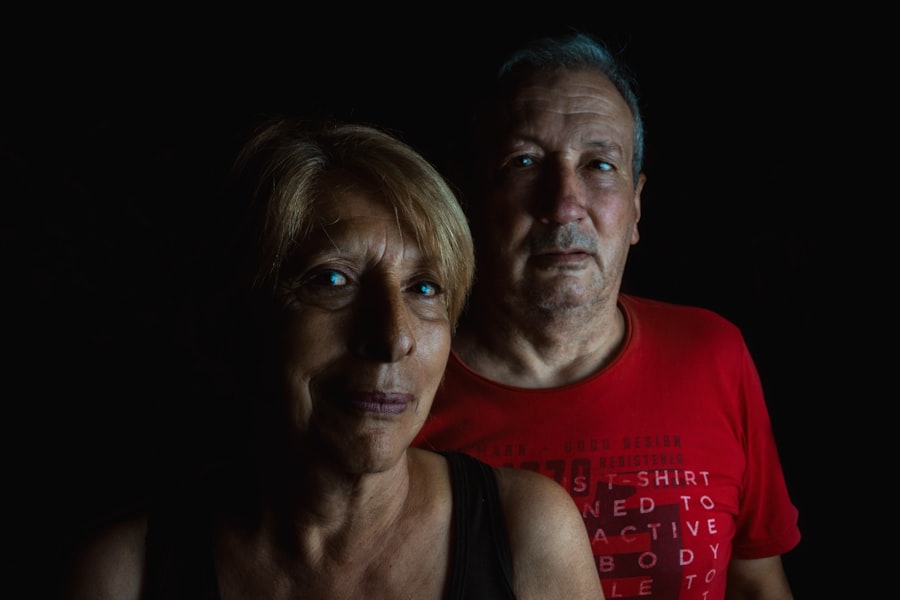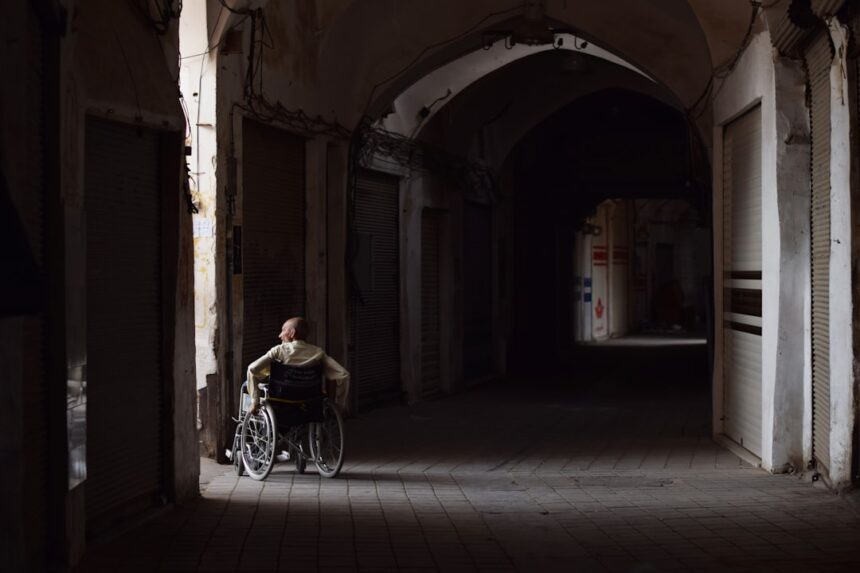In a world where the line between community and manipulation can often blur, documentaries about cults serve as a crucial lens through which you can examine the darker aspects of human connection. This particular documentary delves into the harrowing yet enlightening stories of individuals who have escaped the clutches of cults, shedding light on their experiences and the complex dynamics at play within these groups. By exploring the psychological, emotional, and social ramifications of cult involvement, the film aims to educate viewers about the often-hidden realities of these organizations.
You are invited to witness not just the struggles of survivors but also their incredible journeys toward healing and empowerment. As you engage with this documentary, you will find that it does more than just recount tales of manipulation and control; it also serves as a powerful reminder of the resilience of the human spirit. The film features interviews with former members who share their personal narratives, revealing how they were drawn into these groups and what it took for them to break free.
Through their stories, you will gain insight into the tactics employed by cult leaders and the psychological mechanisms that keep individuals bound to these organizations. Ultimately, this documentary is not just about the darkness of cults; it is also a celebration of survival, recovery, and the importance of community in rebuilding lives.
Key Takeaways
- The documentary provides an introduction to the experiences of cult survivors and the tactics used by cult leaders to control their followers.
- Cult survivors share their experiences of manipulation, isolation, and abuse at the hands of cult leaders.
- Tactics used by cult leaders include manipulation, isolation, and control of information to maintain power over their followers.
- Being in a cult can have a severe psychological impact, including trauma, anxiety, and difficulty trusting others.
- Leaving a cult and rebuilding a new life involves a challenging process of reintegration into society and finding support and resources for recovery.
The experiences of cult survivors
The experiences of cult survivors are as varied as they are profound. Each individual brings a unique story shaped by their circumstances, beliefs, and the specific cult they were involved with. You will hear accounts of people who were lured in by promises of belonging, love, and enlightenment, only to find themselves trapped in a web of manipulation and fear.
These narratives often reveal a common thread: the initial allure of community can quickly devolve into isolation and control. As you listen to these survivors recount their journeys, you may find yourself reflecting on the universal human desire for connection and acceptance. Moreover, the documentary highlights the aftermath of leaving a cult, which can be fraught with challenges.
Survivors often grapple with feelings of guilt, shame, and confusion as they attempt to reintegrate into society. You will witness their struggles to rebuild relationships with family and friends who may not understand their experiences.
Through these stories, you will come to appreciate the strength it takes to reclaim one’s identity after such profound experiences.
Tactics used by cult leaders to control their followers

Cult leaders employ a variety of tactics designed to manipulate and control their followers, often using psychological techniques that exploit vulnerabilities. One common method is love bombing, where new recruits are showered with affection and attention to create a sense of belonging. As you learn about this tactic, you may recognize how it preys on individuals’ innate need for connection and validation.
Once a person feels accepted, they become more susceptible to the leader’s influence, making it easier for the group to impose its beliefs and practices. Another tactic frequently used by cult leaders is isolation. By cutting off members from outside influences—friends, family, and even media—leaders create an environment where dissenting opinions are silenced.
You will see how this isolation fosters dependency on the group for emotional support and validation, making it increasingly difficult for individuals to question their circumstances. The documentary illustrates how these tactics work in tandem to create an environment where critical thinking is stifled, allowing leaders to maintain control over their followers’ lives.
The psychological impact of being in a cult
| Psychological Impact of Being in a Cult | Statistics/Metrics |
|---|---|
| Isolation | 80% of cult members experience isolation from friends and family |
| Control | 90% of cult members report feeling controlled by the leader |
| Dependence | 70% of cult members become financially dependent on the group |
| Fear | 60% of cult members live in fear of punishment or expulsion |
| Identity Loss | 50% of cult members experience a loss of personal identity |
The psychological impact of being in a cult can be devastating and long-lasting. Many survivors report experiencing symptoms akin to post-traumatic stress disorder (PTSD), including flashbacks, anxiety, and depression. As you delve into these accounts, you will gain insight into how the intense emotional experiences within a cult can leave deep psychological scars.
The constant fear of punishment or ostracism can create an environment where individuals feel they must conform at all costs, leading to a profound internal conflict when they eventually seek to leave. Additionally, you will learn about the cognitive dissonance that often arises from being part of a cult. Survivors frequently struggle with reconciling their past beliefs with their current understanding of reality.
This internal struggle can lead to feelings of confusion and self-doubt as they attempt to make sense of their experiences. The documentary poignantly captures these complexities, illustrating how the psychological impact of cult involvement extends far beyond physical confinement; it seeps into every aspect of a survivor’s life.
The process of leaving a cult and rebuilding a new life
Leaving a cult is rarely a straightforward process; it often involves significant emotional turmoil and logistical challenges. You will hear stories from survivors who describe their feelings of fear and uncertainty as they contemplate breaking free from the only life they have known. The decision to leave is often fraught with anxiety about what lies ahead—questions about safety, financial stability, and social connections loom large in their minds.
The documentary captures this tumultuous journey, emphasizing that leaving is not just about walking away; it’s about navigating an entirely new reality. Once out, rebuilding a new life can be equally daunting. Survivors must confront not only their past but also the practicalities of establishing independence—finding jobs, securing housing, and rebuilding relationships with loved ones who may have been alienated during their time in the cult.
You will witness the resilience required to forge a new path while grappling with feelings of loss and disorientation. The documentary highlights that this process is not linear; it involves setbacks and triumphs as survivors learn to reclaim their identities and build fulfilling lives outside the confines of their former groups.
The support and resources available for cult survivors

Fortunately, there are numerous support systems and resources available for those who have escaped cults. You will discover organizations dedicated to helping survivors navigate their recovery journeys through counseling, peer support groups, and educational resources. These organizations provide safe spaces where individuals can share their experiences without judgment while connecting with others who understand their struggles.
The documentary emphasizes the importance of community in healing; having a support network can make all the difference in a survivor’s recovery process. In addition to peer support, professional counseling plays a vital role in helping survivors process their experiences and develop coping strategies. You will learn about various therapeutic approaches tailored specifically for those recovering from cult involvement, including trauma-informed therapy and cognitive-behavioral techniques.
These resources empower survivors to confront their pasts while equipping them with tools to navigate their futures. The documentary underscores that healing is possible with the right support and resources.
Personal stories of resilience and healing
Throughout the documentary, personal stories of resilience shine through as survivors share how they have transformed their pain into strength. You will hear from individuals who have turned their experiences into advocacy work, helping others recognize the signs of manipulation and control within groups that may appear benign on the surface. Their journeys illustrate that healing is not just about moving on; it’s also about using one’s voice to raise awareness and prevent others from falling victim to similar situations.
These narratives are powerful reminders that resilience can manifest in many forms. Some survivors find solace in creative expression—writing, art, or music—as a means of processing their emotions and sharing their stories with others. You will witness how these acts of creation serve as both catharsis and empowerment, allowing individuals to reclaim ownership over their narratives.
The documentary beautifully captures these moments of healing, showcasing how survivors can emerge from darkness into light.
The importance of raising awareness about cults and their tactics
Raising awareness about cults is essential for preventing future victimization and fostering understanding among those who may be unaware of these groups’ manipulative tactics. You will learn how education plays a crucial role in equipping individuals with the knowledge needed to recognize warning signs before becoming involved in potentially dangerous organizations. The documentary emphasizes that awareness is not just about identifying cults; it’s also about understanding the psychological mechanisms that allow such groups to thrive.
Moreover, by sharing survivor stories and experiences, you contribute to a broader conversation about manipulation and control in various contexts—be it religious groups, self-help organizations, or even social movements. The documentary advocates for open dialogue around these issues, encouraging viewers to question what constitutes healthy community versus harmful manipulation. By raising awareness collectively, you can help create an environment where individuals feel empowered to seek help if they find themselves in troubling situations.
The role of therapy and counseling in the recovery process
Therapy and counseling play pivotal roles in helping survivors navigate their recovery journeys after leaving a cult. You will discover how professional support can provide individuals with safe spaces to explore their feelings without fear of judgment or misunderstanding. Therapists trained in trauma-informed care understand the unique challenges faced by cult survivors and can offer tailored approaches that address both emotional healing and practical life skills.
In addition to individual therapy, group counseling can be particularly beneficial for those seeking connection with others who share similar experiences. You will see how group settings foster camaraderie among survivors while providing opportunities for shared learning and growth. The documentary highlights that therapy is not merely about addressing past trauma; it’s also about equipping individuals with tools for building healthier relationships and establishing boundaries moving forward.
How to recognize warning signs of a potentially dangerous group
Recognizing warning signs of potentially dangerous groups is crucial for safeguarding oneself against manipulation and control. You will learn about common red flags that may indicate a group is operating under coercive tactics—such as an emphasis on absolute loyalty to leadership or discouragement of critical thinking. Understanding these signs empowers you to make informed decisions about your affiliations while fostering awareness within your community.
The documentary encourages viewers to trust their instincts when something feels off within a group dynamic. You will hear stories from survivors who initially ignored warning signs due to their desire for belonging or acceptance—only to later realize that those instincts were valid concerns. By educating yourself on these warning signs, you can help create an environment where open dialogue thrives, allowing individuals to seek help before becoming entrenched in harmful situations.
the importance of sharing survivor stories and supporting those who have escaped cults
In conclusion, sharing survivor stories is vital for raising awareness about cults and fostering understanding among those who may be unaware of these groups’ manipulative tactics. By amplifying these voices, you contribute to a culture that values transparency and empathy while encouraging others to seek help if they find themselves in troubling situations. The documentary serves as both an educational tool and a platform for survivors to reclaim their narratives—transforming pain into power through storytelling.
Supporting those who have escaped cults is equally important; your compassion can make a significant difference in someone’s recovery journey. Whether through advocacy work or simply being present for someone in need, your actions can help create an environment where healing is possible. As you reflect on the stories shared throughout this documentary, remember that every voice matters—and together, we can foster understanding while empowering those who have bravely chosen to break free from manipulation and control.
In recent years, the harrowing tales of individuals who have escaped the clutches of cults have captivated audiences worldwide, shedding light on the psychological manipulation and control exerted by these groups. A related article that delves into the psychological aspects of cult dynamics can be found on Unplugged Psych, a platform dedicated to exploring the intricacies of human behavior and mental health. This article provides valuable insights into the psychological mechanisms that cults employ to maintain control over their members, offering a deeper understanding of the challenges faced by survivors. For more information, you can read the full article on their website by following this link.
WATCH NOW! 😱😱😱😱😱The Secret Psychology Cults Use on Anyone
FAQs
What is a cult survivor stories documentary?
A cult survivor stories documentary is a film or video production that features firsthand accounts of individuals who have survived experiences within cults. These documentaries often explore the psychological, emotional, and physical impact of cult involvement, as well as the process of leaving and recovering from the experience.
What are the common themes in cult survivor stories documentaries?
Common themes in cult survivor stories documentaries include manipulation and control by cult leaders, isolation from friends and family, psychological and emotional abuse, indoctrination tactics, and the challenges of rebuilding one’s life after leaving a cult.
Are cult survivor stories documentaries based on real experiences?
Yes, cult survivor stories documentaries are based on the real experiences of individuals who have been involved in cults. These documentaries often feature interviews with survivors, as well as archival footage and reenactments to provide a comprehensive understanding of their experiences.
What is the purpose of cult survivor stories documentaries?
The purpose of cult survivor stories documentaries is to raise awareness about the dangers of cults, to provide support and validation for survivors, and to educate the public about the tactics and impact of cults. These documentaries also aim to empower survivors to share their stories and to promote healing and recovery.
Where can I watch cult survivor stories documentaries?
Cult survivor stories documentaries can be found on various streaming platforms, such as Netflix, Amazon Prime, and Hulu, as well as on documentary-focused websites and channels. Additionally, some documentaries may be available for purchase or rental through online platforms or DVD retailers.




